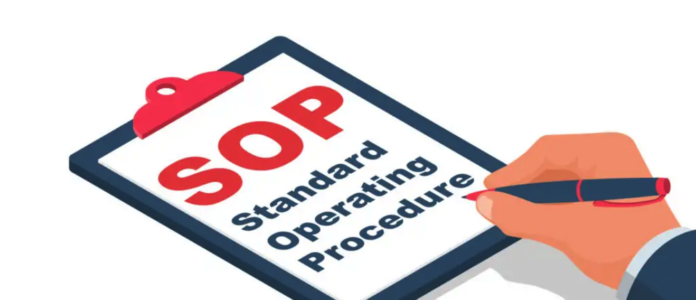What Makes a Great SOP Writer Subcontractor (for Documenting Workflows You Can Actually Use)

If you’re trying to scale your business, what’s in your head needs to get onto paper—or better yet, into a repeatable system your team (or future hires) can follow without asking you 100 questions.
That’s where a great SOP writer subcontractor comes in.
Whether you’re onboarding VAs, training contractors, or systematizing sales and marketing processes, a solid SOP writer turns vague workflows into crystal-clear documentation. The kind you can use, hand off, and improve over time.
Here’s what makes a great SOP writer—and how to avoid hiring someone who just rewords your rambling Loom videos into messy Google Docs.
Why Hire a Subcontractor SOP Writer?
A strong SOP writer helps you:
- Translate your workflows into step-by-step processes
- Create repeatable, delegate-able systems for every part of your business
- Organize your knowledge into a structured, searchable format
- Free yourself from being the bottleneck in your business
- Build training assets you can use for hiring, scaling, or selling
If you’ve ever said “I’ll just do it—it’s faster,” a good SOP writer is your cure.
What Makes a Great SOP Writer Subcontractor?
1. They Start by Mapping the Process With You
Good SOP writers don’t just ask for screenshots—they ask the right questions:
- What’s the purpose of this task or workflow?
- Who needs to perform it?
- What tools are involved?
- What can go wrong or vary depending on conditions?
They help uncover tacit knowledge (the stuff you do automatically but don’t explain) and turn it into clear, usable steps.
2. They Organize SOPs Into a Usable System
You don’t just want documents—you want a system.
Strong SOP writers help you:
- Structure SOPs in Notion, Google Docs, ClickUp, or Process Street
- Use consistent formatting (headers, bullets, decision points, screenshots)
- Add metadata (owner, frequency, last updated)
- Tag by role, department, or tool
- Build indexes or databases so everything is searchable
They make sure your SOPs are easy to find and follow, not buried in a random folder.
3. They Write for Humans, Not Robots
Great SOPs are:
- Clear
- Concise
- Step-by-step
- Visually supported (with screenshots, GIFs, or Loom videos)
- Designed for real-world use (not perfection)
Great writers don’t overcomplicate. They explain what matters, skip what doesn’t, and highlight edge cases or decision points.
4. They Tailor SOPs to the Skill Level of the User
The best SOP writers adapt based on who will be using the document:
- A new VA? More screenshots and definitions
- A tech-savvy operations person? Less handholding, more logic
- A client-facing team? More emphasis on tone and communication
They’ll ask about the end-user and adjust accordingly—so the SOP actually works.
5. They Turn Looms, Notes, and Chaos Into Clarity
You don’t need to write out every step—great SOP writers know how to extract process from mess.
They’re comfortable with:
- Watching Looms or walkthrough videos
- Organizing existing notes, screenshots, and recordings
- Interviewing you or your team to fill in gaps
- Testing the SOP themselves to make sure it works
They do the heavy lifting—so you don’t have to.
6. They Help You Build a Culture of Documentation
Once your first SOPs are written, you’ll want more. The best writers help you:
- Identify what SOPs you need next
- Create SOP templates for future processes
- Train your team to follow and update SOPs
- Build a knowledge base or “Operations Bible” you can hand off or scale
Documentation becomes part of how you work—not just a one-time project.
🚨 How to Spot a Bad SOP Writer (Before You’re Left With a Useless Binder)
Not every writer is a systems thinker. Watch out for these red flags:
❌ They Just Transcribe, Without Understanding
If all they do is type what you say, they’re not actually building a system.
❌ Their Formatting Is Inconsistent
If each SOP looks different, it’ll be hard to scale or trust.
❌ They Don’t Clarify or Ask Questions
If they don’t push back or ask “why” at key points, you’ll end up with vague steps.
❌ They Use Jargon or Corporate-Speak
SOPs should be actionable, not academic.
❌ They Dump Everything Into One File
One giant doc = nobody ever reads or uses it.
Where to Find Great SOP Writers
Look for writers who blend process thinking and documentation skills:
- Upwork – Search “SOP writer,” “systems writer,” or “process documentation”
- Process Street Experts Directory – Vetted professionals for SOP systems
- Notion Consultants – Many offer SOP creation as part of workspace design
- LinkedIn – Try titles like “Ops Writer,” “Process Consultant,” or “Documentation Specialist”
- Referrals – Ask operations leaders, fractional COOs, or VAs for suggestions
What to Ask Before Hiring an SOP Writer
- Can you show me examples of SOPs or systems you’ve documented?
- What’s your process for turning a task into a documented workflow?
- How do you structure and organize SOPs for teams or future growth?
- What tools or platforms do you prefer to work in?
- Do you help train my team to use and maintain these SOPs?
The best SOP writer subcontractors don’t just write instructions—they turn your business into a system that others can run, scale, or even buy someday. Documentation is how you stop being the bottleneck—and start building something that lasts.


